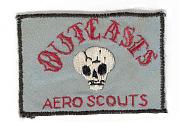Many only partly related comments:
Dave Kilcullen's blog on Luttwak is spot on, perhaps a little too kind. We should recall how the French won the tactical and operational war in Algeria but lost the strategic war because they lost their legitimacy both internationally and in France.
Of academics who are also practitioners:
Lt. Col. David Last, PhD at the Royal Military College of Canada
Ambassador Edwin Corr at the U of Oklahoma
Dr. Walter Kretchik (LTC ret) at Western Il U
Dr. John Waghelstein (COL ret) emeritus Naval War College, teaches a course at Brown as well
General Fred Woerner emeritus at Boston U
Dr. Max Manwaring at SSI/Army War College
Dr. Tom Marks at SNSEE/National Defense University
Dr. Dave Spencer at the Center for Hemispheric Defense Studies
Dr. Wm. J. Olson at the Near East/South Asia Center for strategic Studies
Of some smart, knowledgeable "pure" acadeics:
Dr. Dick Schultz at Fletcher
Dr. Tony Joes at St. Joseph's University
Dr. Chris Madsen at Canadian Forces College




 .
. .
.

 .
.




Bookmarks